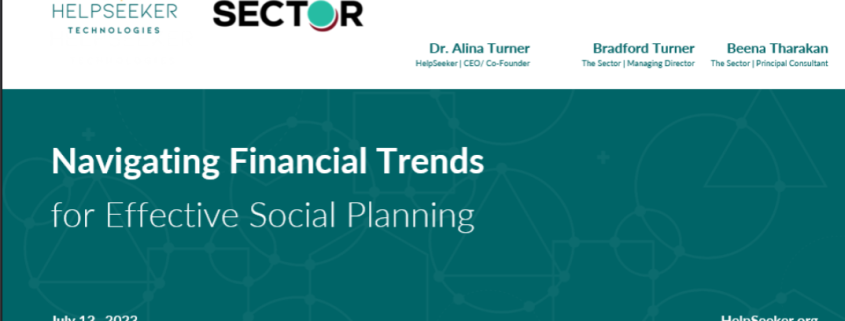A burgeoning partnership in the making, The Sector was grateful honored to provide a seminar for the Propel Impact Fellowship on Social Enterprise Market Research.
Delivered by Beena Tharakan, Co-Founder & Principal Consultant at The Sector, the seminar’s topic’s included:
1. Market Research for Social Enterprises
2. Reasons for Taking the Social Enterprise Approach
3. Knowing Your Market
4. Approach for Social Enterprise Market Research
5. Using a CRM
6. Developing a Social Enterprise Market Ecosystem-build Plan
As the merged nonprofit of the Social Innovation Academy and the National Social Value Fund, Propel Impact is now Canada’s leading – and largest – experiential learning platform for social innovation & impact investing.
Through their flagship Fellowship and Summer Analyst programs, participants are handed the reins to provide capital and capacity-building support to organizations solving pressing environmental, social, and cultural challenges. Propel envisions a world where every organization is impact-first and has the resources required to fully achieve their mission and potential.
Highlights
1. Market Research for Social Enterprises
The market research approach for social enterprises differs from traditional businesses. It focuses on understanding the ecosystem of partners needed to create collective impact and solve systemic issues, rather than just identifying direct customers. Research involves defining the social problem and intended measurable impacts based on a theory of change, determining how to align with partners across sectors, prospecting collaborators, holding focused partnership discussions, and developing an ecosystem build plan to map out short, medium and long term partnership actions that will drive market growth and impacts.
2. Reasons for Taking the Social Enterprise Approach
Social enterprises take an ecosystem building approach to create collective impact through partnerships across sectors, rather than just sell to individual customers. The beneficiaries are not always the direct customers. Value is created through alignment to solve systemic issues.
3. Knowing Your Market
It is important to define the specific social problem being addressed and how the proposed solution will create measurable impact. Credible data should align with and support the theory of change.
4. Approach for Social Enterprise Market Research
The approach involves understanding alignment with other ecosystem actors, identifying the right contacts, having collaborative discussions to co-develop solutions, and analyzing insights to formulate strategies.
5. Using a CRM
A CRM system helps track the ecosystem building approach, interactions, and insights to formulate strategies. Recommended CRM tools optimize managing complex partnerships.
6. Developing a Social Enterprise Market Ecosystem-Build Plan
Creating an effective ecosystem build plan is key for social enterprise market research and growth. The plan should involve mapping out potential partnerships across sectors that can help advance the enterprise’s mission and intended impacts. This includes identifying system-level partners that can influence broader ecosystem design, strategic partners that can expand impacts within the sector, and service delivery partners that can optimize operations. For each partner segment, the plan should lay out prioritized short-term, medium-term, and long-term actions for developing those partnerships. This provides a sequenced roadmap for how the enterprise can strategically build partnerships over time to drive sustainable market growth and collective impact. The plan should align back to the theory of change, considering how to leverage different partners to address root causes and create systemic change. Partnership actions should also be specific, measurable, achievable, relevant and time-bound. Ongoing analysis of insights from ecosystem actors can help refine the plan. Executed well, this ecosystem build plan becomes a guiding strategy for the enterprise to achieve large-scale social impact.


